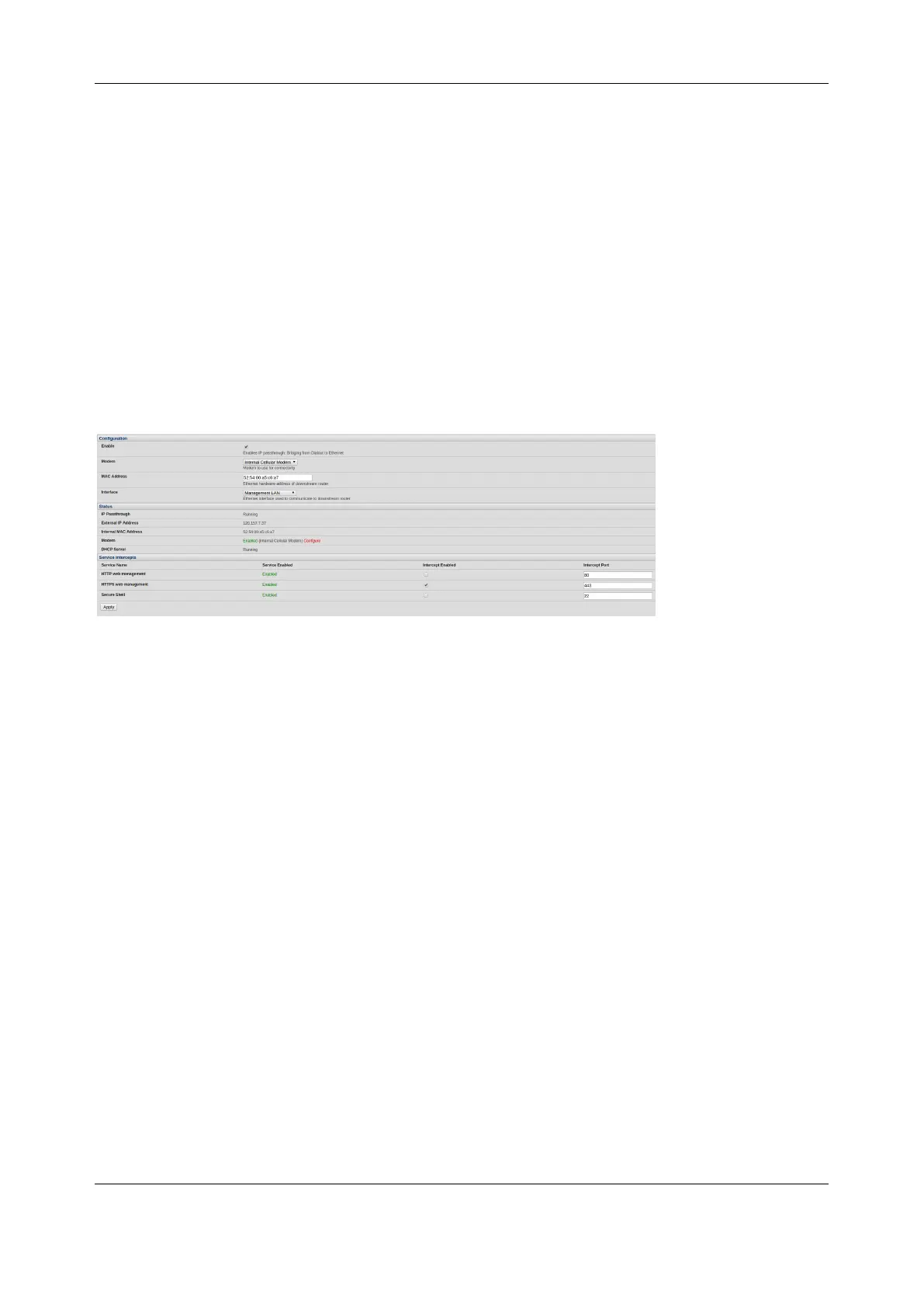Chapter 3: Serial Port, Device and User Configuration
72
• For a cellular connection, click System > Dial: Internal Cellular Modem
• Select Enable Dial-Out and enter carrier details such as APN (see section Cellular Modem
Connection for detailed instructions)
3.13.3 IP Passthrough Configuration
To configure IP Passthrough:
• Click Serial & Network > IP Passthrough and check Enable
• Select the Opengear Modem to use for upstream connectivity
• Optionally, enter the MAC Address of downstream router’s connected interface. If MAC address is
not specified, the Opengear will passthrough to the first downstream device requesting a DHCP
address.
• Select the Opengear Ethernet Interface to use for connectivity to the downstream router
• Click Apply
3.13.4 Service Intercepts
These allow the Opengear to continue to provide services, for example, for out-of-band management when
in IP Passthrough mode. Connections to the modem address on the specified intercept port(s) are
handled by the Opengear rather than passed through to the downstream router.
• For the required service of HTTP, HTTPS or SSH, check Enable
• Optionally modify the Intercept Port to an alternate port (e.g. 8443 for HTTPS), this is useful if you
want to continue to allow the downstream router to remain accessible via its regular port
3.13.5 IP Passthrough Status
Refresh the page to view the Status section. It displays the modem’s External IP Address being passed
through, the Internal MAC Address of the downstream router (only populated when the downstream
router accepts the DHCP lease), and the overall running status of the IP Passthrough service.
You may be alerted to the failover status of the downstream router by configuring a Routed Data Usage
Check under Alerts & Logging > Auto-Response.
3.13.6 Caveats
Some downstream routers may be incompatible with the gateway route. This can happen when IP
Passthrough is bridging a 3G cellular network where the gateway address is a point-to-point destination
address and no subnet information is available. The Opengear sends a DHCP netmask of
255.255.255.255. Devices normally construe this as a single host route on the interface, but some older
downstream devices may have issues.
